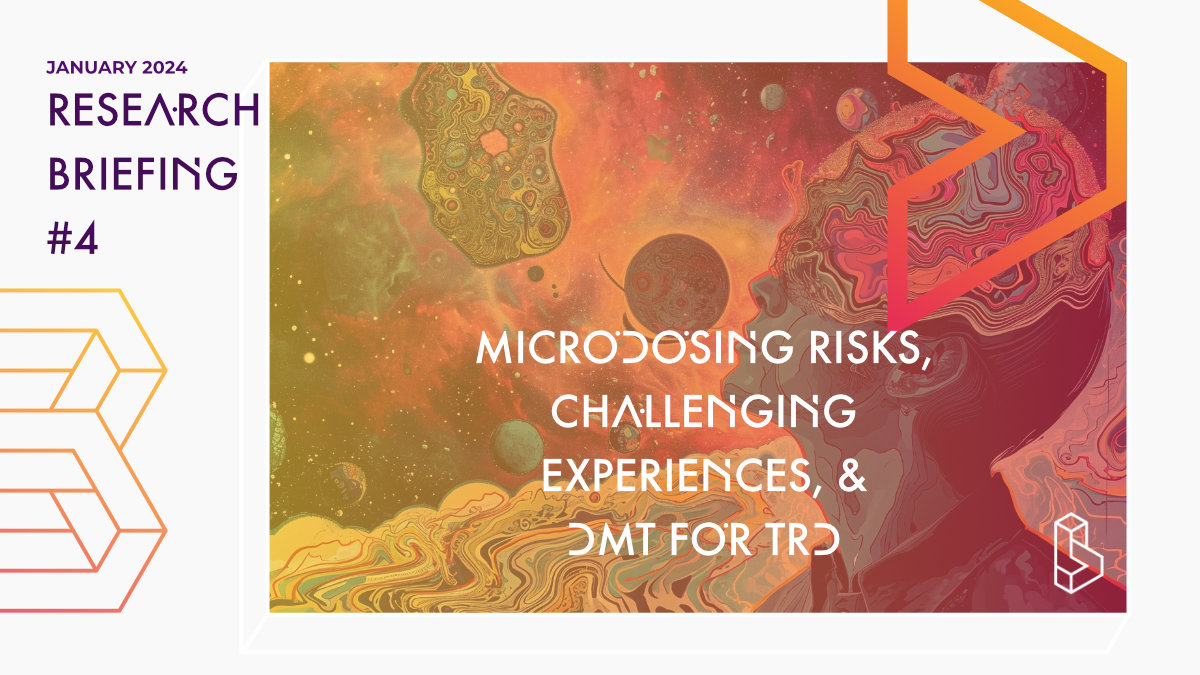Blossom’s weekly recap and analysis of three of the latest psychedelic papers published last week.
Psychedelics hold tremendous promise for the betterment of mental health. Yet, at the same time, these ‘mind-manifesting’ compounds are not without risk. The first article investigates the evidence for the heart-related risks of microdosing, whilst the second examines how individuals (outside of clinical trials) cope with challenging (psychological) experiences. Finally, we take a look at (yet another) DMT study for depression.
What are the Risks of Microdosing Psychedelics?
People are microdosing psychedelics; that’s a fact. Hundreds of thousands, maybe millions, are ingesting 1/20th to 1/10th of a full dose every two to four days (it’s challenging to get an exact number, likely the numbers from the GDS 2021 give the best estimate). From the community, there are no red flags that have popped up around the continued use of psychedelics. Some have microdosed for decades and are doing perfectly fine. If psychedelic microdosing is replacing another medication with more side effects, we might even speculate that this has a positive overall health effect.
At the same time, very little attention has been paid to the long-term effects of microdosing in the scientific literature. It has been known that classical psychedelics have an affinity for the serotonin (5-HT) 2b receptor, which could influence the heart. So, a recent review has brought all of this research together to paint a picture of the risks of microdosing on heart health.
While substances like LSD, psilocybin, and MDMA are commonly used for microdosing, they share structural similarities with medications known to cause cardiac fibrosis (scarring of heart muscles) and valvulopathy (damaging of heart valves). This similarity suggests a potential risk of developing similar heart conditions with chronic microdosing of these psychedelics. Notably, the review points to serotonergic psychedelics’ potential risk of valvular heart disease (VHD), emphasizing the need for further research to understand these risks fully.
The review elaborates on various studies that show the link between certain medications and cardiac fibrosis, a condition leading to the thickening and stiffening of heart tissue. Drugs like methysergide (used for migraine), ergotamine, and some Parkinson’s disease medications (like cabergoline and pergolide) have been associated with heart valve damage due to their chemical structure, which is similar to LSD and psilocybin. These findings are concerning as they draw parallels between these substances and psychedelics used in microdosing, suggesting a potential unrecognized risk of cardiac issues in long-term microdosers.
As discussed in the review, the underlying mechanism of drug-induced cardiac valvulopathy is linked to the overstimulation of the 5-HT2B receptor. When excessively activated, this receptor can lead to the abnormal proliferation of cardiac fibroblasts (a type of cell that contributes to the formation of connective tissue), resulting in thickening of the heart valves and subsequent valvular heart disease. Psychedelics like LSD, psilocybin, and MDMA are known to activate this receptor, indicating a possible risk for those who microdose these substances over extended periods. The review emphasizes the need for more extensive and controlled clinical studies to assess the risk of VHD in chronic microdosers, including echocardiogram (EEG) screenings and monitoring for signs of pro-fibrotic signalling.
The review does a great job of explaining the mechanisms through which these risks may materialize. But if long-term studies (RCTs) on microdosing will materialise is up for debate. Recently, MindMed stopped their microdosing study due to a lack of positive findings (in ADHD symptoms), and commercial incentives might be lacking (versus investigating a high-dose administration of psychedelics).
How Individuals Cope With Challenging Experiences
Continue reading about the other highlighted studies by becoming a paying member.
Become a psychedelic insider
Get a Pro Membership to enjoy these benefits & support Blossom📈 full reports on Topics & Compounds
🧵 full summary reviews of research papers
🚀 full access to new articles
See Memberships

